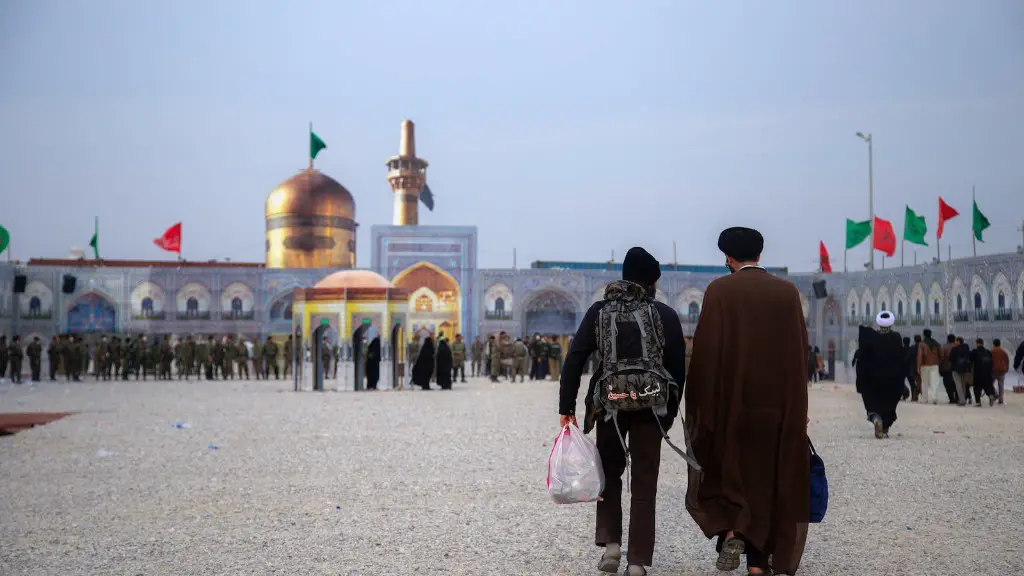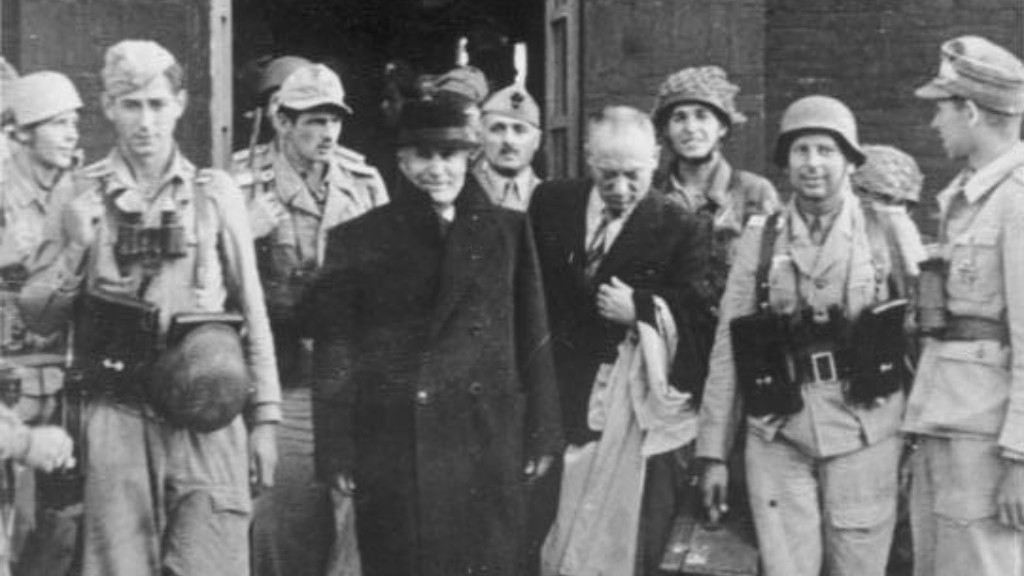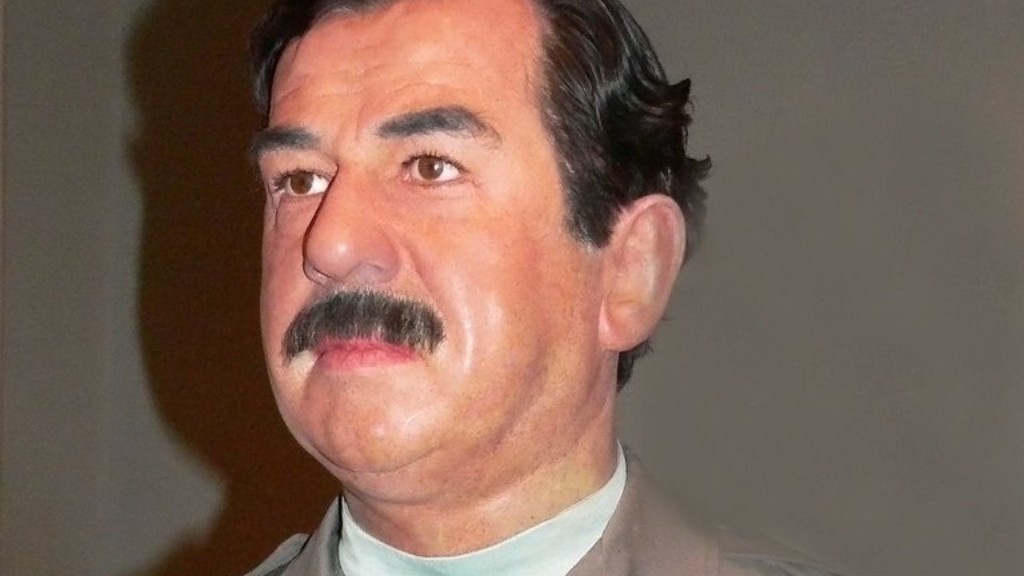Saddam Hussein was an Iraqi dictator who ruled from 1979 to 2003. A Sunni Muslim, he was a member of the Arab Socialist Ba’ath Party, and his policies frequently involved human rights abuses, genocide, and other war crimes.
Saddam Hussein believed in the Pan-Arabism movement, which sought to unify all Arab countries into one political entity. He also believed in armed struggle as a means to achieve this goal, and used terrorism and violence to further his cause.
What did Saddam Hussein want?
Saddam Hussein’s goals as president were to supplant Egypt as leader of the Arab world and to achieve hegemony over the Persian Gulf. In order to achieve these goals, Saddam Hussein launched an invasion of Iran’s oil fields in September 1980. However, the campaign quickly bogged down, resulting in a war of attrition.
Under Saddam Hussein, Iraq was ruled by the Baath party, a secular government. Hussein himself was a Sunni Muslim; Sunni Muslims comprise about 35 percent of Iraqis.
What did Saddam Hussein do that was good
Hussein’s government was known for its use of oil wealth to improve conditions for the general population, including investing in public infrastructure and social welfare programs. While this modernizing effort was praised by some, others criticized Hussein for his repressive regime and human rights abuses.
It is true that Iraq was a much wealthier and safer place before any American intervention. However, it is also true that the American support for Saddam and later the war and sanctions made Iraq a terrible place to live. So, it is not surprising that Iraqis had grown sick of their way of life.
Did the US support Saddam?
The United States supported Iraq during the Iran-Iraq War in the 1980s in order to contain the spread of post-revolutionary Iran’s influence in the region. This support included billions of dollars in economic aid, the sale of dual-use technology, military intelligence, and special operations training. The goal was to help Iraq defeat Iran and prevent Iran from becoming a regional superpower.
Christians in Iraq have long been a target of violence and persecution. After the US-led invasion in 2003, they became even more vulnerable, as the country descended into sectarian violence and chaos. In recent years, however, things have begun to improve, and Christians have enjoyed increased protection and rights under the Iraqi government. While there is still much work to be done to ensure the safety and equality of Christians in Iraq, the situation is slowly getting better.
Was Saddam Hussein Sunni or Shia?
The Baath Party rose to power in Iraq in a 1968 coup. Originally, the party was led by a number of Shiites. However, by the time the party took control, the leadership was solidly in the hands of Sunni tribesmen. Saddam Hussein, a ruthless hit man from the Tikrit region, was a key figure in this leadership group. The Baath Party’s rule lasted for 35 years.
The constitution of Iraq establishes Islam as the official religion of the state, and provides for freedom of religious belief and practice for all individuals. However, it does not explicitly guarantee equality of rights for all religious groups. This lack of explicit protection for minority groups leaves them vulnerable to discrimination and abuse.
Why is Saddam Hussein seen as a hero
Saddam Hussein was one of the most honest person in the area. He was always helping Jordan and most of his gifts were for all the people. Saddam was strong and a man of his word.
Saddam Hussein was executed on December 30, 2006. Prior to his execution, he shouted “Allahu Akbar The Muslim Ummah will be victorious and Palestine is Arab!” This was witnessed by Sami al-Askari.
Was Iraq ever peaceful?
Iraq was once a peaceful country, in the 1950s and 1960s, after it gained independence from British rule. Despite its long history of violence, Iraq was actually calmer during this time, with limited violence. However, this peace was eventually shattered by the outbreak of the Iran-Iraq War in 1980, which led to years of conflict and suffering for the Iraqi people.
Many Iraqis are outraged at the death of Saddam Hussein, viewing him as a martyr. Saddam Hussein was a leader and many feel that he deserved a better death than he received. They believe that he will be with other martyrs in heaven and that they should not be sad or complain about his death.
Why did Saddam fight Iran
There are two main motives ascribed to Saddam Husayn’s decision to invade Iran in 1980. One motive is that he invaded for geopolitical gain when international factors worked in his favor. The other is that he invaded to prevent Iran from fomenting revolution in Iraq.
The Iraq war was justified by the Bush administration in part due to the purported link between Saddam Hussein’s government and terrorist organizations, in particular al-Qaeda. In that sense, the Iraq war was cast as part of the broader War on Terrorism. However, there is no clear evidence that Saddam Hussein’s government was linked to al-Qaeda, and the Iraq war has ultimately been unsuccessful in achieving its goals.
Why did the U.S. overthrow Saddam Hussein?
The US and UK have long claimed that Iraq possesses weapons of mass destruction, and thus poses a threat to global security. However, a UN inspection team have found no evidence of such weapons. This raises the question of whether the US and UK are simply using the WMD issue as an excuse to invade Iraq and overthrow Saddam Hussein.
The United States sold Iraq over $200 million in helicopters, which were used by the Iraqi military in the war. These were the only direct US-Iraqi military sales. At the same time, the US provided substantial covert support for Saddam Hussein.
What does Iraq have to do with the Bible
Iraq is considered the birthplace of the Bible because it is where the Garden of Eden, Abraham, Daniel in the lions’ den, and the Tower of Babel are located.
Zoroastrianism was one of the dominant religions in Northern Mesopotamia before the Islamic era. Currently, Zoroastrianism is an officially recognized religion in Iraqi and Iran. Zoroastrianism is a monotheistic religion that worships Ahura Mazda, the creator of the universe. Zoroastrianism teaches that good thoughts, good words, and good deeds are the key to salvation.
Warp Up
Saddam Hussein believed in the Ba’athist ideology, which advocated for Arab unity and Pan-Arabism.
The answer to this question is not entirely clear, but it seems that Saddam Hussein believed in a combination of socialism, nationalism, and Islam. He was a strong leader who was able to maintain control over Iraq for many years, but his regime ultimately fell to the US-led invasion in 2003.





